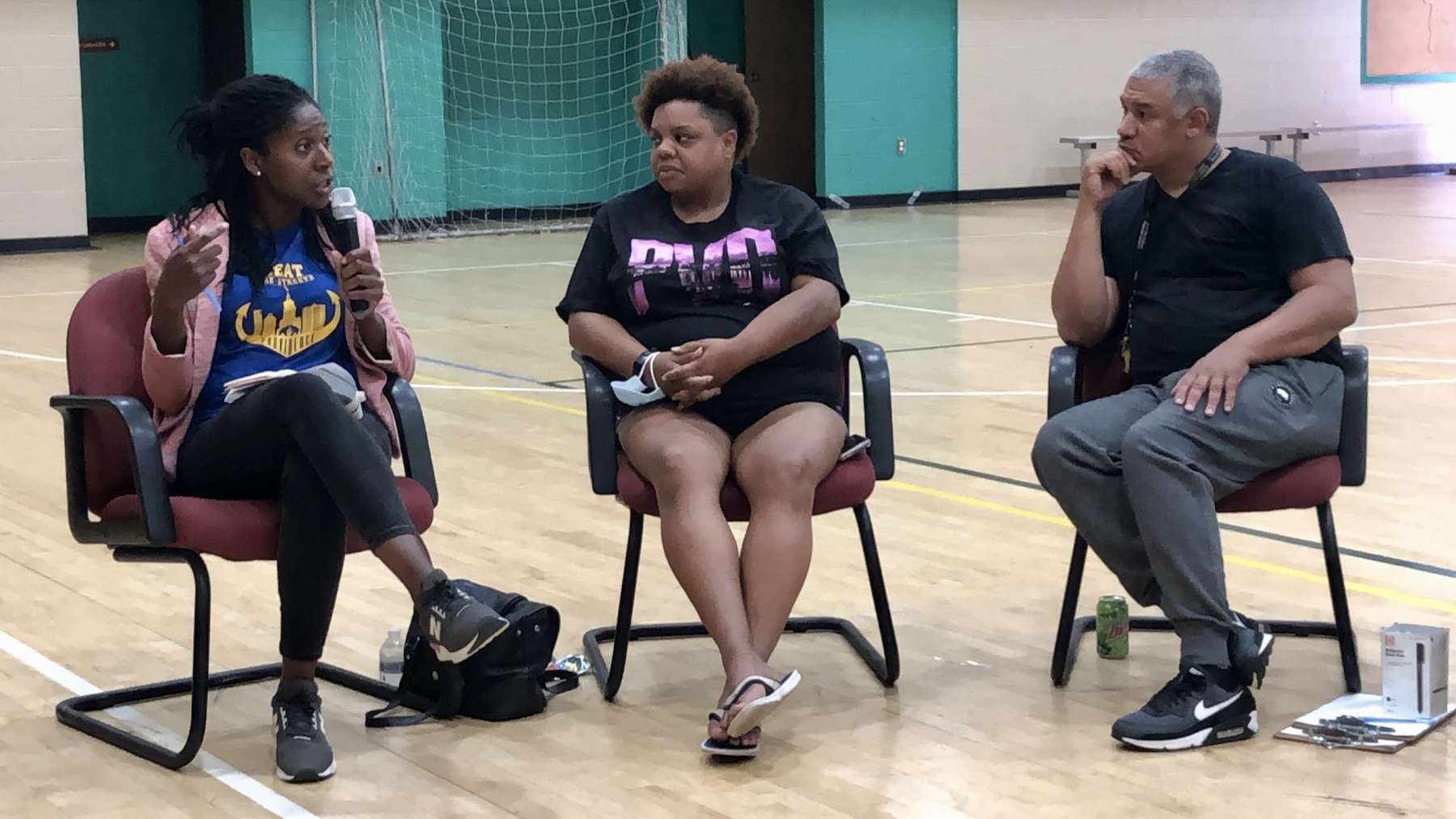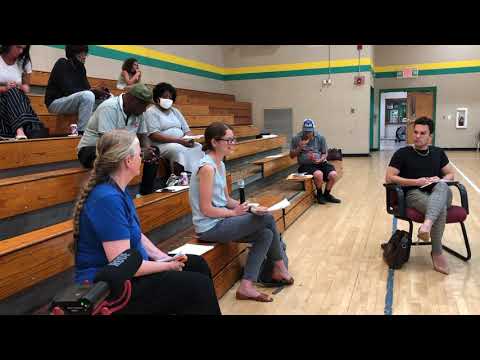Court fines and fees are hurting our communities. What can be done?
“Across the country, many people and organizations are talking about how municipal court fines and fees are unjust,” write the organizers. “These costs often hurt poor people, Black/Indigeneous People of Color (BIPOC) communities, and people who are homeless. Court fines are also connected with racist policing. This causes the courts to be a ‘revolving door’ for many poor and BIPOC people, getting them stuck in the system for years and making it harder to stay connected with family, get housing, and keep healthy.”
July 12, 2021, 10:36 am
By Steve Ahlquist
Community Activist Suzette Cook organized a “community conversation” at the John Hope Settlement House on Saturday to discuss the impact of court fines and fees, the way the system negatively impacts Black/Indigeneous People of Color (BIPOC) communities and the way they contribute to homelessness, joblessness, the destruction of families, and more.
“Across the country, many people and organizations are talking about how municipal court fines and fees are unjust,” write the organizers. “These costs often hurt poor people, Black/Indigeneous People of Color (BIPOC) communities, and people who are homeless. Court fines are also connected with racist policing. This causes the courts to be a ‘revolving door’ for many poor and BIPOC people, getting them stuck in the system for years and making it harder to stay connected with family, get housing, and keep healthy.”
National efforts to make fines and fees more fair have focused on four key changes:
- Assess ability to pay: Courts should work with people to figure out how much they can pay
- Use graduated fines: Fines should be based on people’s incomes and expenses
- Offer payment plans and community services: People should have choices for how to pay
- Stop suspending driver’s licenses: People should not have their licenses suspended for court debt
Here’s the full video form the meeting:
Cook, with OpenDoors and House of Hope CDC began surveying people and holding focus groups in neighborhoods across Providence to determine how municipal court fines and fees were impacting them. The results of the forthcoming survey, as explained by Megan Smith, an outreach worker with the House of Hope CDC, are startling.
- Many people owe debt and have suffered consequences due to that debt
- 42% owe municipal court debt
- 26% had their driver’s licenses suspended
- The most common citations were vehicle-related: red light cameras and parking violations
- The most common arrest was for disorderly conduct
The major themes people talked about while being surveyed:
- The system is stacked against you.
- Courts are focused on getting money
- Laws are not clear and they are not enforced the same way all the time or with all people
- Police charge people with minor moving violations and overnight parking all the time
- Going to court is stressful, judges and court staff can be rude, and your privacy is invaded
- It is hard to figure out how much you owe and what to do about it
- Debts grow fast and build on each other and it is hard to get financially stable
- What happens in municipal court is tied up with the police, other courts and the Department of motor Vehicles
The organizers have a proposed ordinance to deal with many of the issues, based on both the local surveys and national efforts at reform.
Under the proposed ordinance:
- People do not have to pay any municipal fine debt from before 2018
- No more late fees.
- The City will form a working group including people who have been hurt by court debt.
- People who get charged will be given information about how to reduce their debt.
- This will be offered indifferent languages.
- If the person receives SNAP, Medicaid, SSI, or other public assistance their fine will be reduced to 1/4 or less of the full amount.
- People can give the court proof of income in person, by mail or by email or text.
- If the person doesn’t get benefits but can’t pay, they can ask the court for a hearing.
- These rules are for both court debt that people already have and new charges.
- The City will share this information with people who owe the court and with the public.
Only two elected officials attended the meeting, Providence City Councilmembers Nirva LaFortune (Ward 3) and John Gonsalves (Ward 1). Providence Mayor Jorge Elorza sent Bret Jacob, Director of Research and Development, to attend the meeting in his stead.
The councilmembers in attendance seemed interested in introducing an ordinance to deal with many of these issues. Suzette Cook promised future meetings and discussions on this topic.









